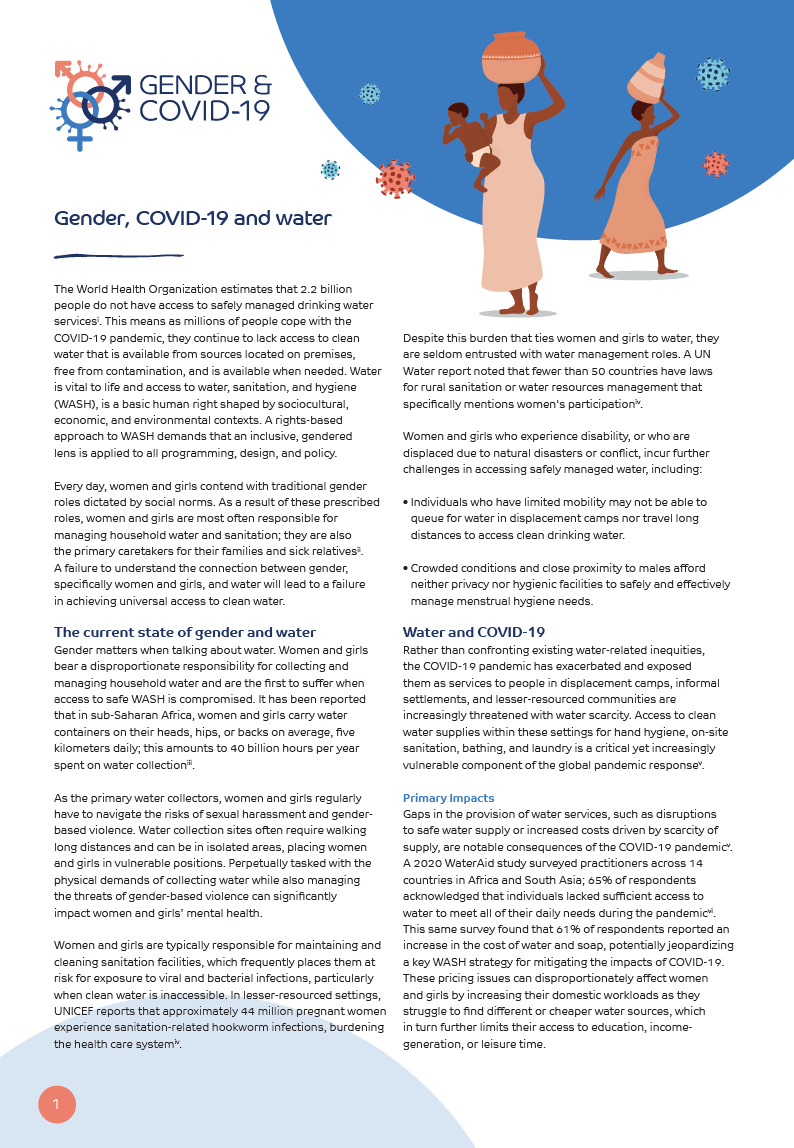The World Health Organization estimates that 2.2 billion people do not have access to safely managed drinking water services. This means as millions of people cope with the COVID-19 pandemic, they continue to lack access to clean water that is available from sources located on premises, free from contamination, and is available when needed. Water is vital to life and access to water, sanitation, and hygiene (WASH), is a basic human right shaped by sociocultural, economic, and environmental contexts. A rights-based approach to WASH demands that an inclusive, gendered lens is applied to all programming, design, and policy.
Every day, women and girls contend with traditional gender roles dictated by social norms. As a result of these prescribed roles, women and girls are most often responsible for managing household water and sanitation; they are also the primary caretakers for their families and sick relatives. A failure to understand the connection between gender, specifically women and girls, and water will lead to a failure in achieving universal access to clean water.
Rather than confronting existing water-related inequities, the COVID-19 pandemic has exacerbated and exposed
them as services to people in displacement camps, informal settlements, and lesser-resourced communities are
increasingly threatened with water scarcity. Access to clean water supplies within these settings for hand hygiene, on-site sanitation, bathing, and laundry is a critical yet increasingly vulnerable component of the global pandemic response.
WASH strategies and programs are the cornerstone of an effective COVID-19 response and have the power to radically reduce the gendered inequalities associated with water collection and resource management. Rather than folding in opportunities to tackle this differential burden placed upon women and girls, the pandemic has continued to push these issues aside.
Fisher Ingraham, R. and Joe, K. (2021). Gender, COVID-19 and water. The Gender and COVID-19 Working Group.






